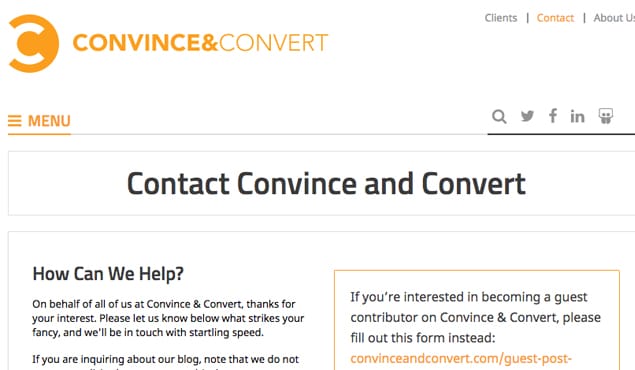I don’t know, can you? You’ve probably come here for a much better answer, but my point in resorting to a child’s taunt is to highlight the fact that we live in a world where you can do a lot if you put your mind to it.
For example, can you go to the bathroom? Yes, I certainly hope so. Can you make a living blogging on other websites? Yup.
The real question is how to do it, and that’s what this article is about.
The first step, though, is setting your mind for believing that you can make money guest blogging.
It’s not an easy road, but there’s nothing stopping you from sitting down, opening that Word doc and getting started.
To get started on this path it’s important to first understand the different terms used in this specific niche of the writing industry.
Blogger
This is the primary term we are working with in this niche, and it’s an umbrella name in the industry.
When it comes down to it a blogger is anyone who writes for online publications that aren’t traditional newspapers.
The writers for traditional newspapers are journalists, or columnists, and come from a different tradition of writing than the blogger.
You will however see some mixing of these roles as media becomes more digital, and as newspapers struggle to find a foothold in the over-saturated world of online articles.
Guest Blogger
This is the most popular term for any blogger that opts to write posts on other people’s blogs.
Typically a guest blogger also has their own blog, business, and product, and guest blogs in a specific niche in order to build a community.
Their posts receive a byline with their name (or whatever author name they want), and are viewed as their opinion and expertise, not that of the blog they write for.
Guest Post(er)
I’ll be brief — guest posts are synonomous with guest blogs. A post or blog is essentially an article, and a guest blogger or guest poster is someone who writes those for other publications.
Contributing Author
This is a more “official” sounding term that larger sites — like Fortune or Entrepreneur or Forbes — use for all of their guest bloggers.
A contributing author is anyone that writes for a publication, but isn’t a staff writer.
Also like the guest blogger, contributing authors get a byline and their words are their own opinions and beliefs.
Likewise, correctly citing facts (and using them) is necessary for all good bloggers, but it’s especially important for contributing authors due to the high-caliber of sites using the term.
It’s basically the same as the guest blogger, but without using that word “blog.” You’ll notice there is some stigma in the industry, stemming from the traditional newspapers, that relegates “blogs” to a category of writers and information that is less authentic than other types.
This image is changing rapidly, but it’s one of the reasons terms like “Contributing Author” exist.
Ghost Writer
This term extends far beyond the world of blogging, but in this context it means anyone that writes articles for a company or individual and doesn’t receive a byline.
The byline could go to an individual.
A good example of this is someone like Neil Patel, the world’s most famous internet marketer. He runs two major blogs and has his hands in too many projects to count — yet he publishes articles daily under his name. He has ghostwriters writing those articles.
However, most of the time the byline goes to a company.
While some companies give bylines to employees, it’s not the most popular practice. You may be working for a content generation company that has hired you, a writer, to create blog posts for a product-based company, like garden hoses. You write articles about garden hoses, the company publishes that article under “Staff” — your name is never attached.
Freelance Writer
This final term is perhaps the most generic of all of these because you can be all of the above and you’re a freelance writer.
Essentially, any writer that gets paid to write, but is not employed full-time by a company is a freelance writer.
This has more to do with the contracts you sign and your method of payment. Typically you receive and submit a 1099 MISC tax return for freelance writing work, rather than a W-2.
If you’re gearing up to dive into any of the writing above, you’ll most likely be a freelance writer, which means you need to learn about the associated taxes, write-offs, fees, and communities you can join.
How to Make a Living Blogging On Other Sites
The distinctions above are important when it comes to making money with your words, specifically when trying to make money by blogging on other sites.
You’ll want to figure out what type of writing you want to do. This means deciding whether or not bylines are important to you, if you’re going to sell a product along with your writing, or simply write in a given niche as an expert.
Each of these methods will be fleshed out below.
Writing Consulting Service
The most straightforward way to make money writing on other blogs or websites is to start a consulting service.
This service will, at its most basic, contract you and your skills out to clients who need content. Because this is an article about blogging — which typically means articles, rather than advertising copy or email marketing — the content you’ll be producing is articles.
There are many specifics to address if you’re creating a writing consulting service.
Are You and Business or Individual?
The first is how you want to position this service, as a business with a name, or your individual name.
Each of these as its merits.
A business with a name — like Writerly Solutions — implies you are a business, have a business license, receive payment in that name and have a website dedicated to that business.
Going this route typically means you need to have your act together, so if you’re just starting out it’s not recommended.
Using your own name — like John Jameson — is quite simple. You will get checks made out to you, don’t need an incorporated business, and can rely on a personal (but professional) website to show potential clients.
Show Your Work
Whatever route you take, if you set yourself up as a writing consulting service you will need to have examples of past work. Thus, this step is for those who already have a foot in the game.
You don’t need to have been paid explicitly for your writing — guest blogging for free and/or maintaining your own blog can be more than enough to show your work to potential clients.
Of course, it helps if you have a portfolio of some sort, accessible via website, so that your client can look you over before deciding.
When it comes down to it, having available work that shows your skills will be necessary to get paid in any of these categories, so get to writing.
Choosing Your Rates
This is a question that pops up all the time — how much can you make?
It’s a very, very wide gamut of ranges, from an obscenely low $10 per article to a whopping $250 per hour, or more.
The difference is essentially in how low you’re willing to go, i.e., how much you value your time. Like any job, you start out lower and, as the years go on, increase your rates.
One issue today is that there are too many people writing online: competition is fierce. This drives down the cost of your words, but I’ll advise you to hold your ground on price.
This is especially important when you have a writing consulting service; you may be dealing with post per word cost, a per hour cost, or a general project cost.
The goal in posting your rates is to give you client’s an idea of how much something might cost. You don’t want to be taken advantage of, so if you post your rates it will be clear from the onset.
If you’re just starting and are fine making a small amount, state that your rates are available upon request, and dependent on the project. You’ll want to see how much work there is, and make up your costs as you go along. In this case, have an hourly amount in mind, and make sure to run the numbers before signing a contract.
Rake in the Clients
In the model of creating your own writing consulting service, you have to remember that you’re basically hitting the market as a writer for hire who’s building a business of clients.
My best advice for this is to get as many clients as you can, as long as they pay you what you feel you’re worth.
Having more connections and streams of revenue is best. It may fray your mental edges a bit, and you’ll have to learn time management, but this is your income, and if one stream dries up you’ll need more to keep paying the bills.
The other aspect to keep in mind when blogging for money is that sometimes client’s money dries up or goes a different route. You typically won’t have a contract that extends beyond 3 months (if that), so you need to be prepared for things to go bust.
Likewise, the more clients you have the more you grow as a writer. Your expertise gets deeper, your portfolio looks better, and over time you can begin to make more and take on more selective projects.
Search For Sites That Pay Per Guest Post
The tips for a writing consulting service are generally applicable to all freelance writers in every field, but they are particularly for those digging into creating a business out of their writing skills.
There is another way to look for paying work as a blogger, and it’s a classic: search.
There are plenty of blogs out there that pay for articles. You just have to look for them. Of course people have spent time assembling long lists to make that process easier for you, so you should start with these lists.
You’ll want to find sites that publish articles in your particular niche. Then create a spreadsheet with every publisher that works for your topic and break them into smaller blogs and larger publishers, with the goal of working up to the larger ones.
You’ll have to get excellent at pitching your ideas to the editors of these sites, but the knowledge that they accept guest posts and pay for them is a huge first step.
You’ll want to keep a couple other things in mind, too.
Follow Rules and Guidelines
The first rule of pitching your content to publishers is to follow their posted guidelines and rules. Do this perfectly, exactly as they asked, or you risk getting dumped in the trash and blacklisted by the website.
If a publication publicly posts that it’s paying writers for guest posts, the number of pitches it receives will be astronomical. You’ll have to follow the rules to even be considered.
This includes joining any forums or groups the site requests — this is common to weed out bots or writers who spam inboxes.
Keep At It
Like I said, the number of pitches these sites receive is massive. Don’t get discouraged if you don’t get a post published immediately.
This method of getting paid is great for people starting out, and the continual application process will increase your writing chops while showing persistence that will, eventually, get you a paid article. It’s only uphill from there.
Also, remember that if an article is declined by a publisher you can always pitch it to another one. Just make sure the niche fits.
Don’t Be Afraid to Ask
While there are sites that publicly state how much they pay for articles, there are plenty of sites that accept authors, pay them, and never tell the public about it.
These sites may call these writers guest bloggers or contributing authors, but they are out there.
You can always reach out to editors, inquiring if they pay for guest posts. That said, make sure you do ample research on the subject — don’t send off hundreds of emails to editors, mass asking about how much they pay.
You’ll want to combine the ask with who you are, and make sure you’re emailing the right person.
Take the answer and work to produce an article worthy of publication if you think it’s worth it.
Guest Blogging for Brand Awareness
The two methods above are all about making money directly from writing articles.
That’s important, but there’s also the whole backdrop of guest blogging that is less about the money made from articles, and more about the exposure that writing such articles can garner.
This has to do with four essential elements:
- Building Community: When you guest blog new readers see your name, read your words, and will probably trickle over to your site.
- Building Authority: Guest blogging on for excellent niche sites shows you are a valid contributor to the field.
- Building Connections: The more you guest blog, the more people you know on the inside of your industry.
- Building Backlinks: Every guest blog you write should include at least one follow link back to your site, thereby increasing your search rankings.
Writing blogs on other people’s websites is typically all about growing your name and brand, not about getting paid.
You’ll see that most sites that accept guest blog posts don’t offer any sort of monetary reward. This has been the standard practice of the industry, because the benefits each party receives are mutually beneficial.
If you own a business, have a product, or plan to make money from your current website, guest blogging is an indirect but powerful way to increase your status.
Think about it — the more recognized you are in a field, the more readers you have, the more your search will improve, and the more money you will make from the products you are selling (or the affiliate links on your website).
This is often called passive income, and guest blogging is one of the best methods for growing that income.
Time to Strategize
The three methods for making money by blogging outlined above are fairly clear. The real work comes in deciding what exactly you want to pursue, and then building a detailed map for that path.
You can do a combination of all three, but know that it takes energy, research, and countless hours to turn a profit in this industry.
How do you want to make your money?
 ContentPowered.com
ContentPowered.com











